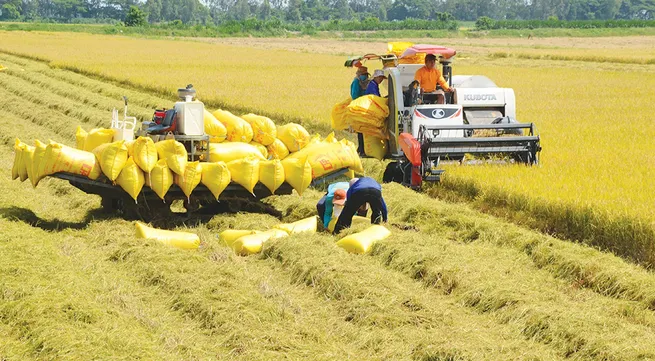First national dialogue on Vietnam food systems held

The dialogue was jointly organised by the Ministries of Agriculture and Rural Development, Foreign Affairs, Health, Natural Resources and Environment, Industry and Trade, and Planning and Investment, the United Nations in Vietnam and international partners.
The event focused its discussions on two main issues, including problems needing to be solved in Vietnam’s food systems and opportunities, solutions and actions to turn the nation’s food systems towards transparency, accountability, and sustainability by 2030.
According to the Ministry of Agriculture and Rural Development, Vietnam's food systems are diverse and rich, but they are also facing many challenges. Forecasts about global climate change in recent years show that Vietnam is one of the countries most heavily affected by climate change.
In addition, the production force has not brought into full play its strength to improve labour productivity and accumulated value. Cooperation between partners in the supply chain is also unsustainable while the capacity to respond to market risk, natural disasters and epidemics remains limited.
Vietnam's agriculture sector plays a particularly important role in ensuring food security, social stability and livelihoods for the over 60% of the population living in rural areas, contributing 14.85% to the country's GDP, according to Deputy Minister of Agriculture and Rural Development Le Quoc Doanh.
The participants said that Vietnam needs to take specific actions to promote cooperation and effectively use its resources to ensure food security, nutrition and food safety, not only for the nearly 100 million Vietnamese people but also to become a transparent, responsible and sustainable food supplier for the world.
According to the Ministry of Agriculture and Rural Development, Vietnam has registered to participate in the 2021 UN Food Systems Summit. To prepare for this event, the Ministry will organise two national and three regional dialogues from June 15 to July 15, 2021, in online form.
The 2021 UN Food Systems Summit aims to guide the development of a more sustainable, comprehensive and resilient food system, thereby having a multi-dimensional impact to help achieve the Sustainable Development Goals by 2030.





